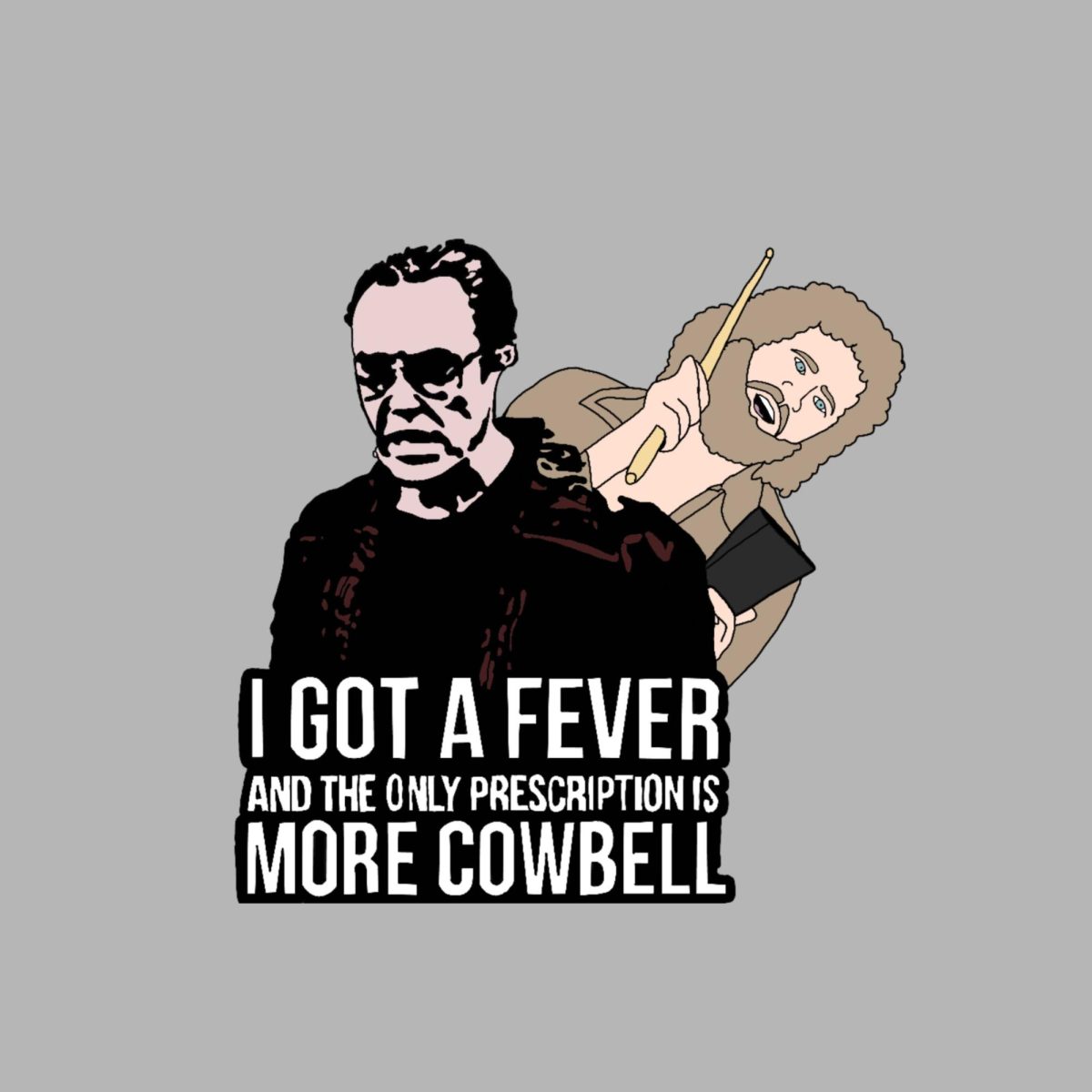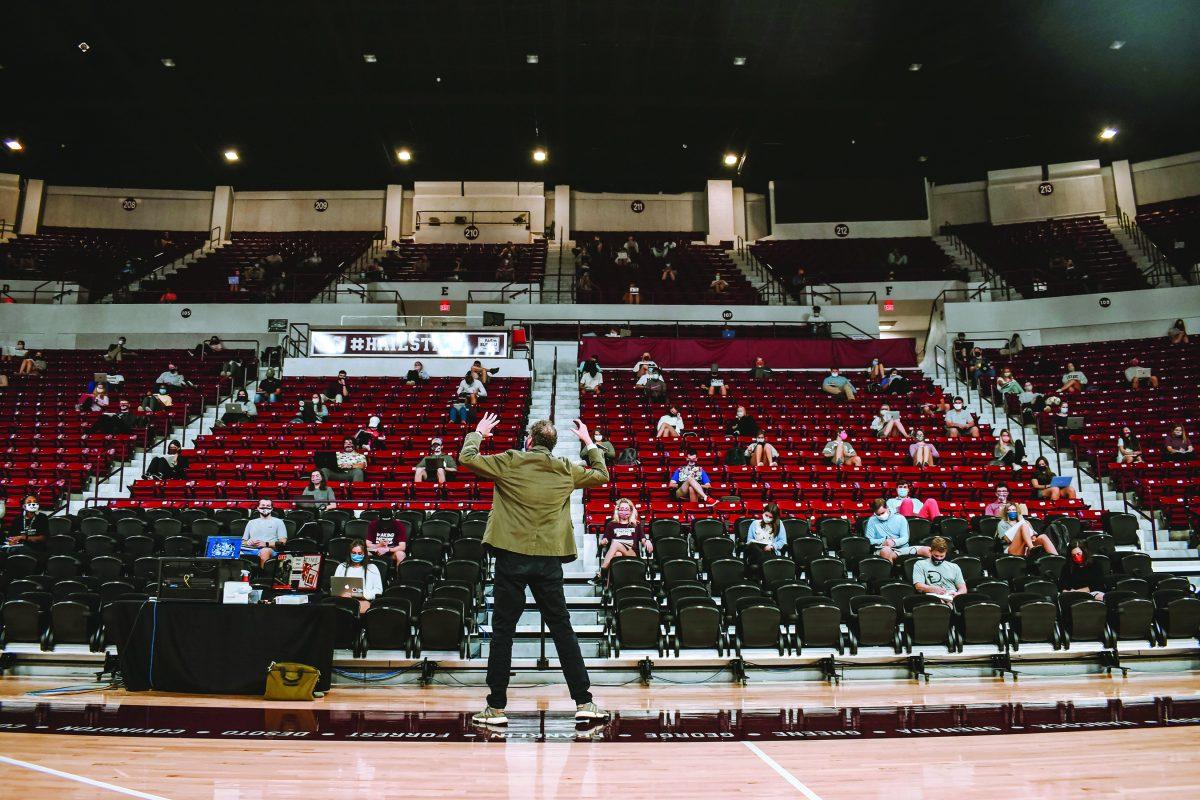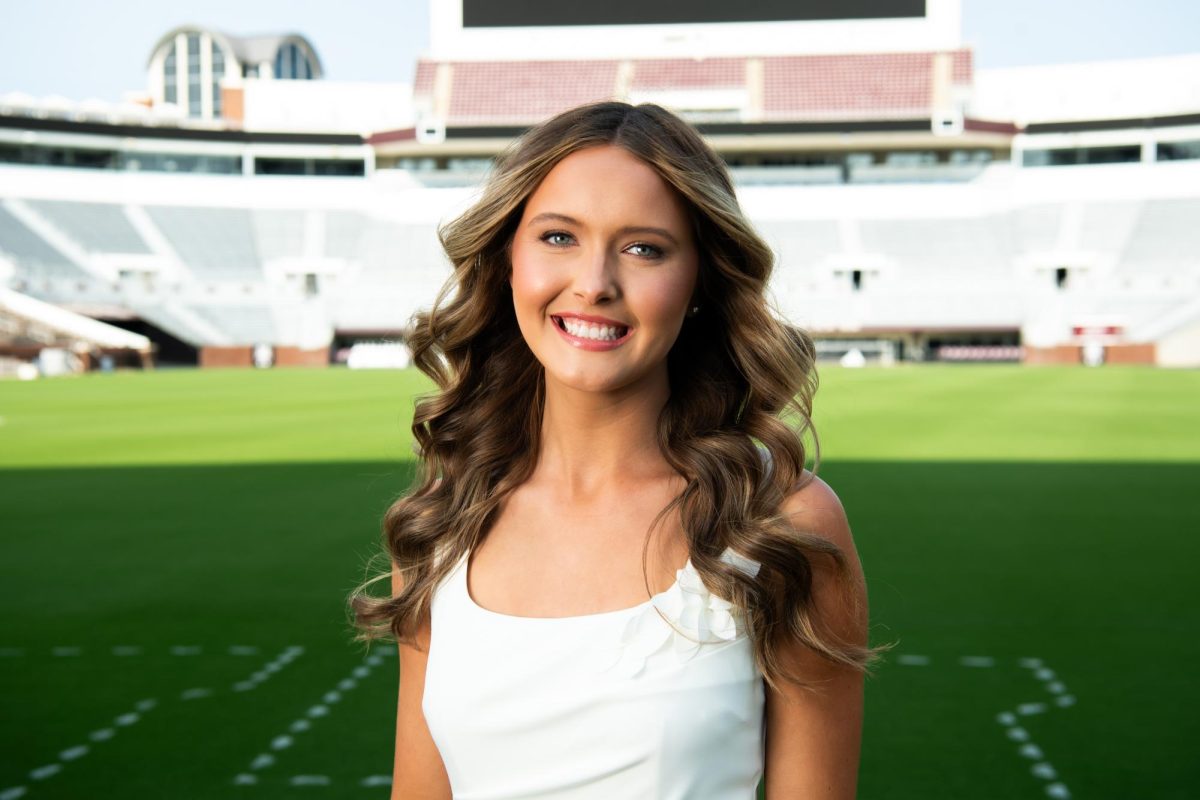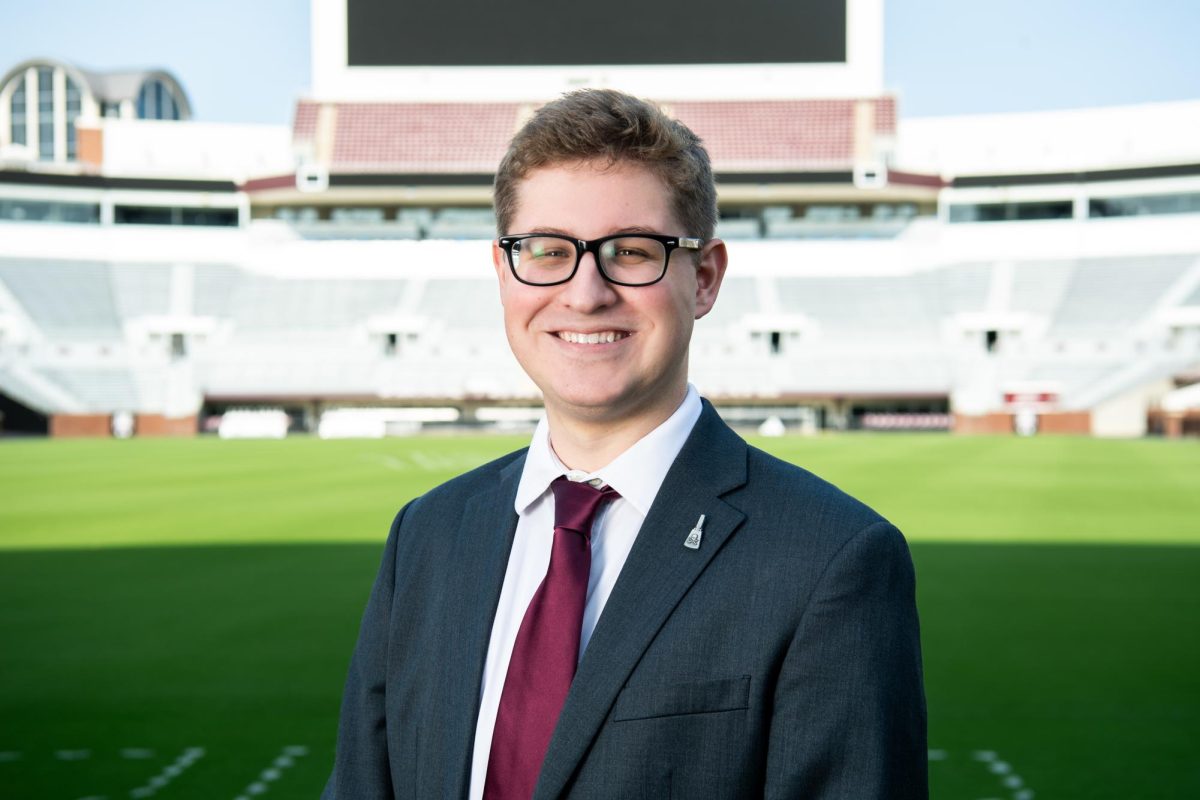“I told the students I was going to try and dunk in class, but I’m 47. So I’m not sure; it could be the most epic of fails,” joked Mississippi State University Professor Jim Giesen, one of the many MSU professors who are teaching their classes this semester in a variety of nontraditional learning spaces.
Last semester, in response to the onset of the novel COVID-19 virus, the MSU campus closed its doors and conducted all classes virtually. However, this semester, after a summer of planning and preparation and in response to student requests for a return to face-to-face instruction, the university announced their intention to offer in-person classes in a safe, socially distanced manner. This necessitated the use of many never-before-used classroom spaces on MSU’s campus, such as the Humphrey Coliseum arena, the Newell-Grissom volleyball gym, the McCarthy Gymnasium, the Sanderson Center, the McComas Theater, Bettersworth Auditorium in Lee Hall and the Leo Seal M Club in Davis Wade Stadium.
John Dickerson, MSU registrar and assistant vice president for enrollment, said Provost David Shaw appointed a task force at the beginning of the summer to find and set up additional classroom space that would allow for the necessary social distancing.
“We knew if we were going to have any kind of face-to-face opportunities we were going to have to use some different space,” Dickerson said.
The group compiled a list of potential spaces and then analyzed the logistics of each one with ITS and Facilities Management. The group considered factors such as entrance accessibility, the distance that would need to be traveled in between classes, technological challenges and size of the space, among others.
“It was a lot of meetings, a lot of time in these spaces,” Dickerson said.
Several spaces were considered that ultimately were not used, such as the Old Main parking garage. The idea of a “tent city” was tossed around but deemed too challenging to facilitate logistically.
An MSU press release described all the hard work MSU staff put into preparing the campus for the return of students over the summer, including laying 29,000 feet of network cable, installing 159 cameras in classrooms in a matter of days and even making their own sanitizing wipes when they were sold out due to such high demand.
“There’s been a lot of great cooperation, and everybody’s risen to the occasion to help,” Dickerson said.
MSU Associate Professor of history Jim Giesen teaches a class of 800 students in the Humphrey Coliseum arena. Normally, he teaches two classes of 400 students in the Old Main Auditorium, but the classes were combined to be taught in the Hump this year.
In a spin on the t-shirt cannon used by the cheerleaders at basketball games, Giesen is now known for using a three-person slingshot to launch t-shirts into the stands that say “making history in the Hump.”
Giesen said that, aside from the slight delay in the microphone that comes from teaching in such a big arena, he has not had any technology issues, although he records his PowerPoints with voiceovers separately to accommodate for students that are unable to attend class in person rather than doing a live WebEx recording of his lectures.
The historical value of teaching class in the Hump, something that is a first for MSU and hopefully a last, is not lost on Giesen.
“I tried to tell the students that on that first day. I tried to say, ‘People are going to be writing history books, and this class is going to be a line in the history book,'” Giesen said.
Brock Engel, a junior marketing major, has his principles of marketing class in the Hump on Mondays and Wednesdays, as well as classes in other nontraditional spaces such as Lee Hall and the McComas theater.
Engel said the stark contrast between the atmosphere of the Hump filled with raging Bulldog fans on game days versus the Hump on weekdays for classes was shocking on the first day.
“It’s just so bizarre not having it full and loud. When you walk in, it’s just dead silent because nobody’s really talking. It’s kind of funny,” Engel said.
Recently, MSU Vice President for Student Affairs Regina Hyatt sent out an email to the student body acknowledging the university’s disappointment in the high rates of student unattendance in face-to-face classes over the last five weeks.
“So many of you indicated a strong preference for face-to-face instruction. Thus, we are surprised by the drop in face-to-face class attendance, especially as we are also seeing a significant reduction in the number of positive COVID cases and students in quarantine or isolation,” Hyatt said in the email.
Giesen said his highest class attendance was on the first day. Since then, his class averages about half attendance.
“So much work has gone into students being able to show up and go to class, so I’m a little disappointed because I know all the work that everybody else has done to make it happen,” Giesen said.
Registrar Dickerson said he was not frustrated by the drop in attendance, as it was something they knew was a possibility, but that the university is working on a set of guidelines for the spring.
As of now, the university is planning to continue conducting classes in various nontraditional spaces next semester.
Dickerson said the unprecedented times the university has had to navigate over the past year have been a great learning experience.
“It’s your outlook on it. We’ve learned a lot,” Dickerson said. “There are a lot of things that we’ve learned that we can use going forward when things are back to normal, whenever that may be, that are helpful to students, helpful to faculty, and so there are certainly some positives that have come out of it.”
From basketball to books: MSU utilizes and adjusts to unconventional classroom locations amidst COVID-19
Hannah Blankenship | The Reflector
Professor Jim Giesen teaches his Modern U.S. History class on Tuesdays and Thursdays in the Humphrey Coliseum Arena. The Hump is just one of the many repurposed locations for classes.
About the Contributor
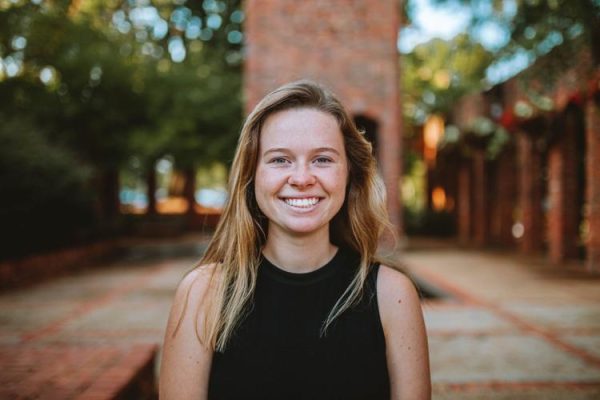
Hannah Blankenship, Former Editor-in-Chief
Hannah Blankenship served as Editor-in-Chief of The Reflector from 2021 to 2022.
She also served as the Managing Editor from 2020 to 2021 and as the News Editor from 2019 to 2020.
Hannah was named College Journalist of the Year at the 2022 Southeastern Journalism Conference.
0
Donate to The Reflector
Your donation will support the student journalists of Mississippi State University. Your contribution will allow us to purchase equipment and cover our annual website hosting costs.
More to Discover










































